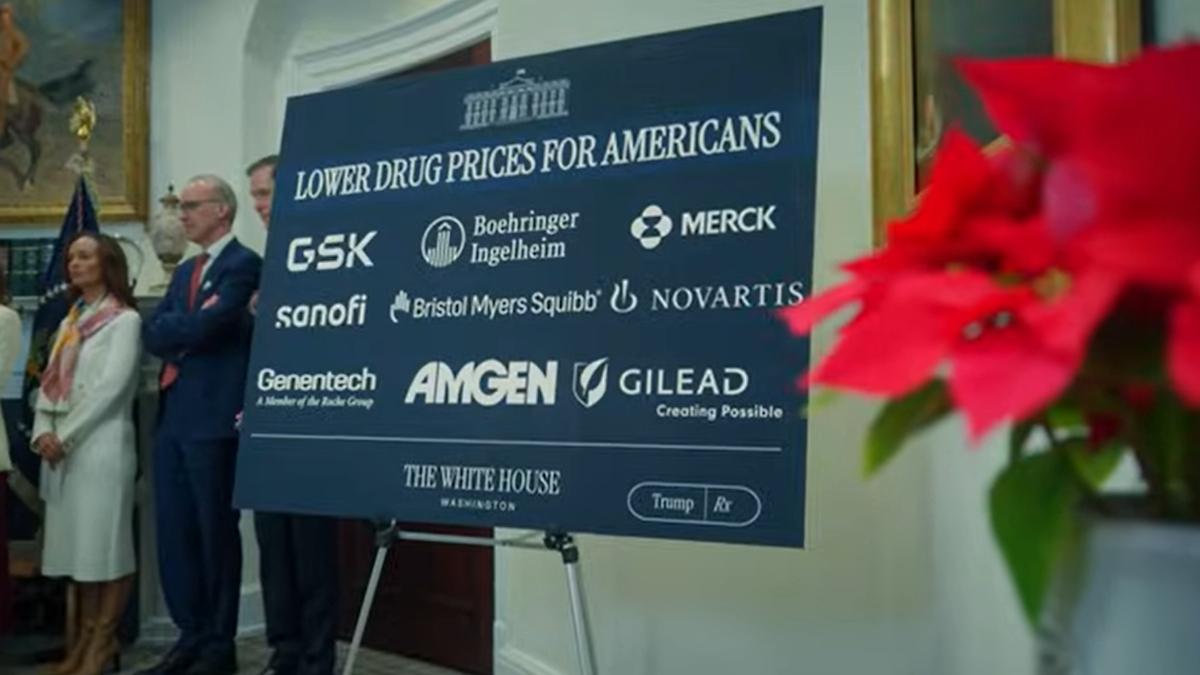Op-ed: Pharma must show courage, leadership on public health

There’s a common public perception of pharma executives as callous, money-hungry suits who want as many people to be sick as possible – so they’ll pay as much as possible for their drugs.
Of course, anyone who works in the industry knows how far this is from the truth. Pharma folks are motivated by the same thing that motivates doctors: helping people. They want to find cures for the diseases that devastate patients and families and vaccines to keep us safe from the next pandemic. And we’ve accomplished a great deal in pursuit of those goals.
Yes, everyone in pharma I’ve met wants to see fewer sick people and more healthy people. And if you go to a healthcare conference you will hear many pharma executives talk about this motivation. You’ll even hear them talk about the public perception problems the industry faces and how it should move to correct them.
Unfortunately, what you won’t hear, or at least won’t hear enough of, is criticism – or even acknowledgement – of the elephant in the room in 2025.
President Donald Trump and DOGE head Elon Musk, in their nominal pursuit of government savings, have decimated agencies around the globe that fight disease, save lives, and keep Americans safe. Saving a little money has come at the expense of saving a lot of lives. All the work that healthcare workers, including pharma companies, have done over the past decades to improve global health, is being undone overnight.
It would take a much longer column than this to list all the harm the Trump Administration and DOGE have already done to public health and patient safety. But to name just a few, their dismantling of USAID has already put a halt to lifesaving programmes around the world that helped fight malaria, tuberculosis, HIV/AIDS and more. UNAID estimates these cuts will lead to 2,000 new HIV infections each day. Health funding closer to home is being cut as well.
Cuts to NIH funding, meanwhile, will have widespread impacts on new drug development, which relies on government-supported academic research in its early stages. And the United States has abdicated its leadership role on public health by completing its withdrawal from the World Health Organization.
None of this is normal. None of this is politics as usual. And it shouldn’t be a political act to decry the harm being done to patients around the world.
Attending a pharma conference last month, I was shocked when I sat in on a keynote session on preventative health. Panellists extoled the virtues of the measles vaccine – while not saying a word about the current measles outbreak or HHS Secretary Robert F Kennedy Jr’s history of vaccine denialism.
They highlighted the successes of modern medicine in AIDS specifically – without discussing the slashing of the wildly successful PEPFAR programme that provides life-saving HIV and AIDS care to people in Africa.
At a conference concerned with the state of the pharma industry in the United States, discussions of the current unprecedented state of affairs in the United States were relegated to the sidelines.
In a breakout session on health equity, things were more encouraging, but there were still deafening silences. One brave presenter, who was employed by a major pharma company, but asked me not to identify her, admitted on stage that her presentation had been “censored” (her words), with attorneys for her company telling her to avoid words like “equity” and “underserved populations”. At a presentation about health equity.
I understand the hesitancy to criticise the current administration on stage, when one is on the record. Donald Trump has proven himself vindictive, using every lever of power to discourage speech that doesn’t align with his administration’s stated values. Many pharma companies have been cowed into removing DEI language from their websites.
But this is a time for courage. Look no further than Harvard University for an example. This is the moment where large institutions that have the financial power to do so are taking a stand for what they believe in.
The damage done by the Trump Administration’s actions around global health is a fact, not an opinion. The world has become less healthy, significantly, as a result of this administration’s actions. That’s not a political statement; it’s a mere statement of fact.
Anyone who purports to care about global health, about public health, should be speaking out against these actions, loudly and often. Pharmaceutical companies have an enormous amount of money and power, and they’re no strangers to using their platforms to lead on important issues like sustainability and diversity, equity, and inclusion.
Your voice matters, and silence is complicity. The pharma industry has an opportunity to show the world that its commitment to health is real and is more important than money or political expediency.
Courage begets courage. There is safety in numbers. During the breakout session of this event that I chaired, I dedicated a few minutes at the start of the day to encouraging speakers to not ignore the elephant in the room – a much shorter, less thought-out version of this column. Throughout the day, several speakers discussed the additional challenges to their work created by the Trump administration. I don’t know if these asides were planned all along, but I’m glad I took a chance and opened the door to discussion.
We all have platforms small and large. At conferences. On social media. Internally at our organisations. No matter how we feel about anything else the Trump administration is doing or not doing, we can and should loudly condemn its attacks on public health. If we don’t, if we stay silent in this moment, then anything we have to say in the future about caring about health, patient safety, and quality of life will ring hollow – and pharma will live up to its undeserved reputation for callousness.
_______________________________________
Some people are not in a position publicly to speak up, for fear of losing their job or immigration status. If you have news or opinions related to the Trump Administration’s healthcare moves that you want to share anonymously, you can find me on Signal at jonah_comstock.63












